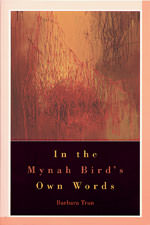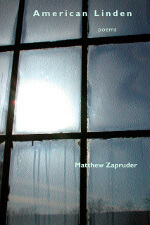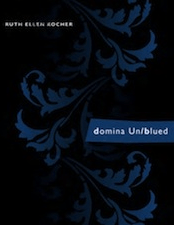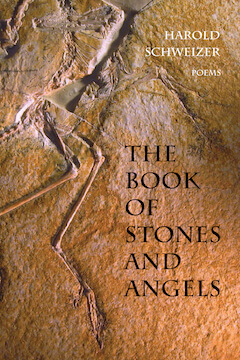In The Mynah Bird’s Own Words
by Barbara Tran
$10.95
“.. a remarkable volume. An assemblage of lined poems and prose poems, it is a compact and concentrated, lyrically delicious collection that comes very close to having the sweep of a novel. The long, central sequence, Rosary, is astonishing. It builds a powerful narrative arc, and yet its each part, each impeccable verse paragraph is discrete and beautiful…This collection is part sleight of hand, but all highly crafted. It is, in a word, magic.” —Robert Wrigley, Judge, First Annual Tupelo Press Chapbook Competition
Format: paperback
Out of stock
Barbara Tran’s poetry is featured in the September 2003 issue of the bi-lingual Vietnamese-English magazine Nha.
NewPages, the Portal of Independents, has another review of In The Mynah Bird’s Own Words.
The Ann Arbor News reviewed In The Mynah Bird’s Own Words, in the September 30, 2003 issue.
“In The Mynah Bird’s Own Words is a remarkable volume. An assemblage of lined poems and prose poems, it is a compact and concentrated, lyrically delicious collection that comes very close to having the sweep of a novel. The long, central sequence, Rosary, is astonishing. It builds a powerful narrative arc, and yet its each part, each impeccable verse paragraph is discrete and beautiful. Things in these poems take on symbolic values that loom ever larger as we see how each connects and returns us to the larger story. And yet, even the poems outside the centerpiece sequence are part of that same whole, so that by the time we reach the concluding poem, Art,in which a woman practices the craft of what one might call seductive invisibility, we are made to see that poem, and that woman’s craft, as very like this poet’s art. This collection is part sleight of hand, but all highly crafted. It is, in a word, magic.” —Robert Wrigley, Judge, First Annual Tupelo Press Chapbook Competition
 Barbara Tran’s poetry collection, In the Mynah Bird’s Own Words, selected by Robert Wrigley for Tupelo Press, was a PEN Open Book Award finalist. Barbara is the co-editor of Watermark: Vietnamese American Poetry & Prose; guest editor of the special Michigan Quarterly Review issue “Viet Nam: Beyond the Frame”; and the recipient of a Pushcart Prize, Bread Loaf scholarship, and Lannan Foundation writing residency, and has been published in the New Yorker.
Barbara Tran’s poetry collection, In the Mynah Bird’s Own Words, selected by Robert Wrigley for Tupelo Press, was a PEN Open Book Award finalist. Barbara is the co-editor of Watermark: Vietnamese American Poetry & Prose; guest editor of the special Michigan Quarterly Review issue “Viet Nam: Beyond the Frame”; and the recipient of a Pushcart Prize, Bread Loaf scholarship, and Lannan Foundation writing residency, and has been published in the New Yorker.
Awards
- 2006 Drunken Boat: Panliterary Award Finalist
- 2004 Bread Loaf Writers’ Conference: Theodore Morrison Scholar in Poetry
- 2003 Lannan Foundation Writing Residency
- 2003 Asian American Writers’ Workshop: Members’ Choice Award Finalist
- 2002 PEN: Open Book Award Finalist
- 2002 ForeWord Magazine: Book of the Year Finalist
- 2000 Asian Avenue: Poetry Contest, 1st Prize
- 1999 Pushcart Prize
- 1997 MacDowell Colony: Gerald Freund Fellowship
- 1993-4 New York Community Trust/Edward and Sally Van Lier Fellowship
Additional information
| Weight | .4 lbs |
|---|---|
| Dimensions | 6 × .5 × 9 in |
Love and Rice
He jumped off the water buffalo, and I knew we’d be married.
He turned it easily, pushing its head to the side.
The orange diep trees were like blazes of sun
hanging in the air below the clouds.
I told Mother that night he was my lover.
He knew nothing of it.
I thought of nothing else as I wrung the sheets.
That he was my cousin didn’t matter,
there was no room for shame.
Grandmother would notice the sun setting
and know her clock needed winding,
know she had missed her bananas and rice.
That first time I touched him, I thought of nothing but fruit.
There was no electricity then, night came early.
I took a long bath, pouring water
gently over my body, watching it drip
between the wooden slats.
Soon, I’d be carrying
a weight inside me.
Fire
Xuong
After the mynah bird’s tongue was split open by the chili peppers
he fed it, after the rough outer layer of its tongue peeled off, after it
finally did what he commanded, after the bird gave in and cawed,
Speak, stupid, speak, morning after morning, Uncle Five would have
given anything to return it to its original ignorant state. Instead, day
after day, he was greeted with the same stale command he himself
had issued to the bird. Only then did he recognize his mistake, and
only now, do they recognize theirs. In the eyes of the other men I see
bewilderment that I have been allowed to fly free in their home. Where
is his cage, I know they wonder. Who has let him out? I long now for
my wife to join me, to feel her body curl into mine, the way certain
words in Vietnamese charm my tongue and settle deep in my chest.
bait
Through the eye, my grandfather threads the rusty hook, forces it back
through the body of the fish. The tail curves around as if frozen
mid-leap. The seagulls never leave. The smell of fish always in the air.
Today, the old man will give them nothing. It is his daughter
he is thinking of. My mother is fourteen and beginning to turn
heads. Her father thinks she will like the seagull with the pure white
underside. He watches the birds, daring one another to come closer.
He watches the younger ones in their confusion. The swoop and
retreat. He has not fed them for days. Minutes go by, and he thinks
the boats will come in soon, scattering the gulls. The Year of the
Snake is only days away. He would buy his daughter a dove, but she
likes the wind. With a quick swoop, a gull grabs the fish in its beak.
The old man wraps the line around his roughened hands, braces
himself for the tug as the line grows more taut. And suddenly the
bird jerks in the sky, wings extended as if it’s been shot.





